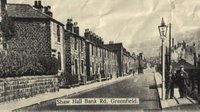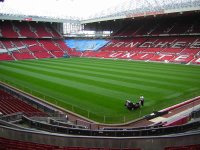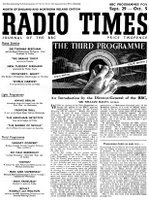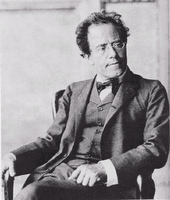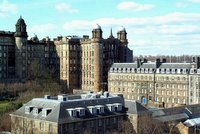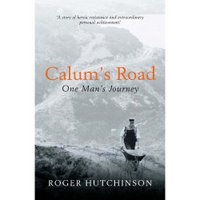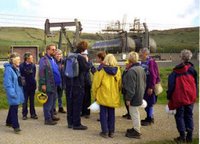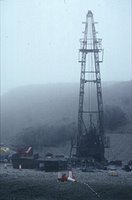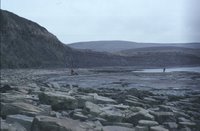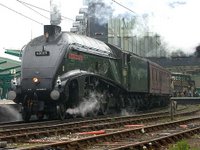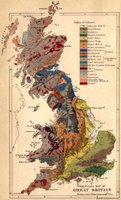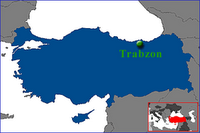
"Of course I live here in Trabizon, but I am not Turkish. You see, I have to put a sound between the b and the z. It is not possible to say this word like you Turks say it.
My language is Georgian, and of course I know Russian but do not speak it anymore. We had to learn it at school, but we didn't speak it very much. If ever we had to go up to that frozen city in the north, we would practise Russian, but Georgian is my language, and now a little Turkish.
I came here because it is not very far from my village in the green hills of Georgia. We do not grow tea as you do along this coast. We used to but the 5 Year Plans never allowed for it, and so we only grew it for our own use, a little patch behind the kitchen.
Nobody loves tea like a Georgian, except the Turkish, and the English who do not make tea like we do. We know how to brew tea, we do not rush it, to spoil just to get in front of the television or a football match. In Georgia, and now here in Turkey, we make our tea with love and we are rewarded with a drink fit for the Czar to enjoy.
When the border opened and the 5 Year Plans were over we crossed and came along that road that leads to the first town, Hopa. We could see that you had been frightened of us. That road, the only way into your country from ours, could have been destroyed easily and sent into the sea. The faces of the quarries would have rolled over the ashphalt and we could not have come.
It was not our doing you understand, to be unfriendly to you beside your firesides watching the news of this and that, listening to the ideology pouring out of that cold city in the north, and I am sure that it was none of your doing to say and think about our too large brute that is now not anywhere.
We have come, that is all, and everything that ever was is forgotten for as I have said we had no control over the saying.
Now we are here we are happy. My friend over there, you see, on that stall selling bits of anything, watches, bottles of Vodka, spanners, she is no beauty but she makes a fortune in the night, around the hotels.
Those girls, I do not do such things, tell me that this is not Trabizon, this, they say, is Eldorado, they say that the streets are paved with gold around Taksim Square up in the centre of the town.
They are not bad girls. Some of them were schoolteachers in Georgia, but they have families in the villages. One has an old mother who needs treatment in hospital. Such things were not possible five years ago, but now she can earn enough on her back in two or three nights in the hotel bedrooms of Taksim Square to send her mother to hospital, although now it will probably be too late for the poor cow should have gone in years ago.
Like a pheasant that has too many brown chicks, we did not look after our own. The men who ruled us but never cared for us, took us for granted, and fed their own glory from the mouths of statues, and now the statues of stone are knocked down forever, we have to look after ourselves again, but I think that is too late for some.
We never really thanked the man with the marks on his head until it was all over. Nobody ever imagined that what he did could be done. We just brushed him aside as yet another good talker, just another zealous reformer who would end up in the Lubyanka, but he did it and we are free from that yoke.
You called us Russia but we were a lot of little countries. Look at that grey haired man selling lathe tools. He comes from a little country on the Caspian Sea which used to be under the same yoke, but now he is free.I cannot speak his lingo and, he has forgotten any Russian he ever had to learn at school so now if I want to talk to him we talk in this language of yours, Turkish.
Those women over there, yes, look, they are different. They come from a little country, cold and grey, and yet they are warm people. They look not like us who are from the same villages and the same towns. They have high blue eyes, high cheekbones and proud faces, plenty to be proud of. They had to speak other tongues than their own in what they thought was their own country, and work like dogs only to starve like dogs, but that is all forgotten, I do not forget, but my husband who is dead, lying in Georgian earth, said I was a fool, but it is sometimes hard to not remember, and so do not try to forget for a while, that is the way to stop these things from happening again to us, or to any of us who are together in this world.
Enough talk. You want to buy. Look what I have for you. Playing cards, you play cards, don't you? A bottle of Georgian vodka, better than that cheap stuff she is selling over there.
Here we have clothes for the young people. They are listening to music that is loud and wild, I do not like it but I like our young people being a bit crazy like all young people, while it is the time for them to do things like I don't know what in these new days.
You want a watch, maybe a stop-watch on a chain that looks silver. Look on the back. See it has an emblem. It is from our navy. Look here you will find these nowhere else in the world, dishes for holding I don't know what, they have a hole in the centre. This one is the 10th symphony of that fool Shostakovitch. He was in favour with those jackals in Moscow until he got an international reputation. He was criticised for writing subversive music, though how you can tell instruments are being subversive beats me, but that was for the intelligentsia to know. We were made to think we knew nothing.
Anyway, he was criticised. We thought he would be spending the rest of his days in exile, but what does he do, but reply, through his music of course, and before they could stop it being played, we were hearing it on the BBC from London.
That is one of my ambitions by the way, to see the magnificent Bush House, full of plays and symphonies, that would be something to see. I suppose my daughter's kids will see it someday.
I tell them, I say, go to England and tell me all about it when you get back. Tell me how it can be again in Georgia, and I will perhaps start to forget. Imagine my granddaughter walking along the Strand, and double buses full of people, and the Queen still living in London, and visiting the East End bombed in the war.
But look at this stuff, the leftovers of a superpower. Don't make me laugh. You want to know what really makes me laugh, that the crazy Americans were shit scared of those bastards in Moscow and Leningrad. Here were we, making this stuff in our poor factories, on antiquated machines, our friends coming out of the gates every day, maimed for life by the cruelty of progress, and not a thing to be done, to have to beg for a crust on some street corner the rest of his miserable life.
The world's richest, most advanced country, frightened of us, beavering away behind our closed borders producing this, a coffee grinder that wouldn't grind a monkey nut, a drill that hasn't been hardened, it wouldn't even drill wood, and a radio that might get the World Service from Bush House if you were sitting in the Strand.
And now it's all over, and we are here..in Eldorado. The British and the Americans go to the Middle East, that is their Eldorado, with black gold under the sand dunes, but this is ours, here on the beautiful Black Sea, a few kilometres for some of us, a thousand for him from the shores of the Caspian sea. And these green hills are looking like our green hills, from the same rain that is always pouring from grey skies full of more rain, making our tea grow, and our people fat and happy again in Eldorado, with that loud voice shouting the Muslims to come to prayer, morning, noon and night.
I never hear it these days, it is just so much noise, but they still go to the mosque, the devout, the ones with beards, and little skull caps, and their women, covered from head to foot, they go, at different times, and they are good to us. They come to buy the things that they can't get from their own shops. The trip to the capital, or to Istanbul is too long, fourteen hours on a coach is a long time.
And us, we learn their language, and live in their houses and apartments, sell them all kinds of rubbish, and see some of their menfolk behind closed doors on hotel corridors, and we do exactly what we want, or should I say, do what we are capable of doing.
We know the value of goodness, and we are glad to do things, to make money. Yes, of course, for nobody can live without money, but as well, it is for the making and the doing, and to see what we have made and what we have done. To be able to say to you, look what I have done with these hands. I was not ordered to do it. I did it because I wanted to, that is all, and that is the best reason for doing something, because of wanting to make something and say that is mine, and now you will give me something for it, and it is yours. You give me some of that tea you have grown, with your hard work and with the hand of God, and this is yours.
And we do what we can, whatever that thing may be, it is good. She has the looks and the figure, she earns her life on her back. That man was an engineer in Rostov, he sharpens scissors and knives, I was a shop assistant with empty counters and queues for nothing much, and I sell this stuff under the covered market, sitting in the shaded roadside, looking across at the row of cheap hotels, watching my sisters leading men in suits up the whitewashed steps.
We each do what we can, and we are free, free to starve if we must, but free for all that. The threat of starving to death is better than being told that you have to move to a farm two thousand kilometres from the place you were born, to starve there instead.
The pheasant with too many chicks, and her bright plumage showing everywhere that she is a good mother when she is nothing of the sort.
That old piece of nastiness, Joe Stalin, they say, was a Georgian, but I never believed it. No Georgian that I ever met would do such things. We are a kind people, who just want to be left to get on with our lives, write music, sell vodka, or ourselves, it doesn't matter, so long as we live by our own decisions, to live or to die, here in this green, pleasant land, where they grow tea, and sit drinking it in the evenings, without the fear of somebody coming to take them away. This is Eldorado.
*This story is from my book of short stories entitled 'Other people-other worlds'
http://search.barnesandnoble.com/booksearch/isbnInquiry.asp?z=y&EAN=9780595340651&itm=4Find my other book, 'Ginger's Tail' at
http://search.barnesandnoble.com/booksearch/isbnInquiry.asp?z=y&EAN=9780595313754&itm=3Robert L Fielding
